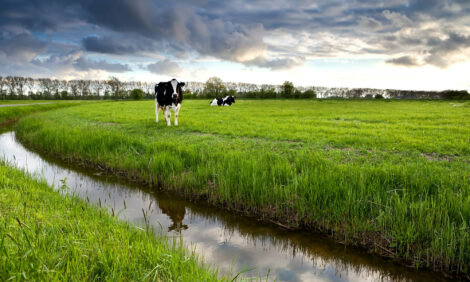



Forage, Wheat Holds Up After Hard Winter
US - Despite heavy sleet and ice from winter storms, forage and wheat crops have shown no noticeable damage this spring, said two Purdue University Extension specialists."With the amount of snowfall and ice we received in early February, it was important for farmers to monitor their fields as the snow and ice melted because it could have caused serious damage," said Keith Johnson, forage crops specialist. "We luckily have not seen or heard of any serious damage that was caused by the winter storms."
Mr Johnson said farmers should inspect forage for heaving and dieback of whole plants or portions of tillers on plants.
"Cool and wet springs can be problematic for the development of many diseases, especially in new stands of alfalfa that have low levels of resistance to the pathogens present," Mr Johnson said.
"Herbicide selection is important for forage fields. Make sure to select a herbicide that is effective in controlling weeds of concern and know what the restrictions are for the herbicide selected. Knowing the plantback, grazing and harvesting restrictions are important factors. Crop rotation, grazing management and harvest date are affected by the herbicides used."
Mr Johnson urged farmers to be on the lookout for alfalfa weevil, as well. He added that producers should monitor weather conditions and crop development, and make sure machinery is ready to go when it is time to harvest forage.
As farmers head into the spring season stage of winter wheat, it is important to keep scouting fields for potential problems, said Shaun Casteel, wheat specialist.
Producers should scout for cold injury, yellowing and plant viruses, Casteel said. Wheat insects that could be a problem include cereal leaf beetle larvae and Hessian fly larvae.
"Many farmers planted wheat early in the fall, and if they did so before the Hessian fly-free date for their part of the state, their chances of Hessian fly in their fields is much higher."
The fly-free dates range from September 22 in northern Indiana counties to October 9 in southern counties.


